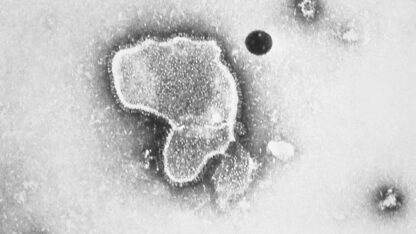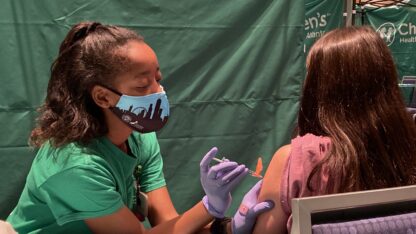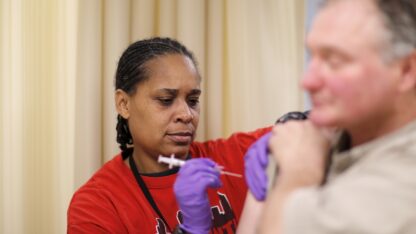Georgia COVID-19 cases are continuing their upward climb again this week. And federal health officials are warning we could see a simultaneous surge in coronavirus, flu and respiratory syncytial virus or RSV over the upcoming winter holidays.
The Atlanta-based United States Centers for Disease Control and Prevention is monitoring early spikes in seasonal flu activity and flu-related hospitalizations this year, with the Southeast as a major hotspot.
Georgia’s also continuing to report high and widespread levels of flu activity. The most recent influenza data show the state with a total of 246 metro area influenza hospitalizations.
The Georgia Department of Public Health recommends the flu vaccine as the best way to prevent illness.
“Every individual over the age of six months should get a flu vaccine –not just for their own protection, but to protect others around them who may be more vulnerable to the flu and its complications,” said DPH commissioner Dr. Kathleen Toomey in a written statement. “It takes about two weeks after vaccination for antibodies that protect against flu to develop in the body, so now is the time to get a flu shot.”
Flu symptoms can include fever, cough, sore throat, runny or stuffy nose, body aches, headache, chills, and fatigue. People age 65 and up, people with some chronic medical conditions, pregnant women, and children under age 5 are at higher risk for severe complications from flu.
Confirmed COVID-19 cases and hospitalizations are also up in the state for the second consecutive week.
Since last week, DPH reports that there have been 4,497 new confirmed cases, 574 coronavirus patients hospitalized, and 65 deaths.
Unvaccinated people remain at much higher risk for severe illness and death from COVID-19. DPH urges everyone to be vaccinated and boosted against Covid. The latest booster shot is open to anyone age five and up.
Officials are also raising the alarm about an early surge in RSV. It’s a common virus in the U.S., but the country saw cases drop during earlier phases of the coronavirus pandemic.
Now, with pandemic restrictions easing and people gathering in person more often, RSV cases and pediatric hospitalizations are rising fast.
The virus can cause cold-like symptoms, including runny nose, cough and fever, but it can also lead to dangerous breathing problems for babies and older adults.
The CDC reports that most people infected with RSV can spread the virus for up to 8 days. But some infants, and people with weakened immune systems, may continue to spread the virus for as long as four weeks.
There’s no vaccine treatment for RSV. For now, health officials recommend following tried-and-true prevention methods, including staying home when sick, washing hands regularly and disinfecting surfaces.








